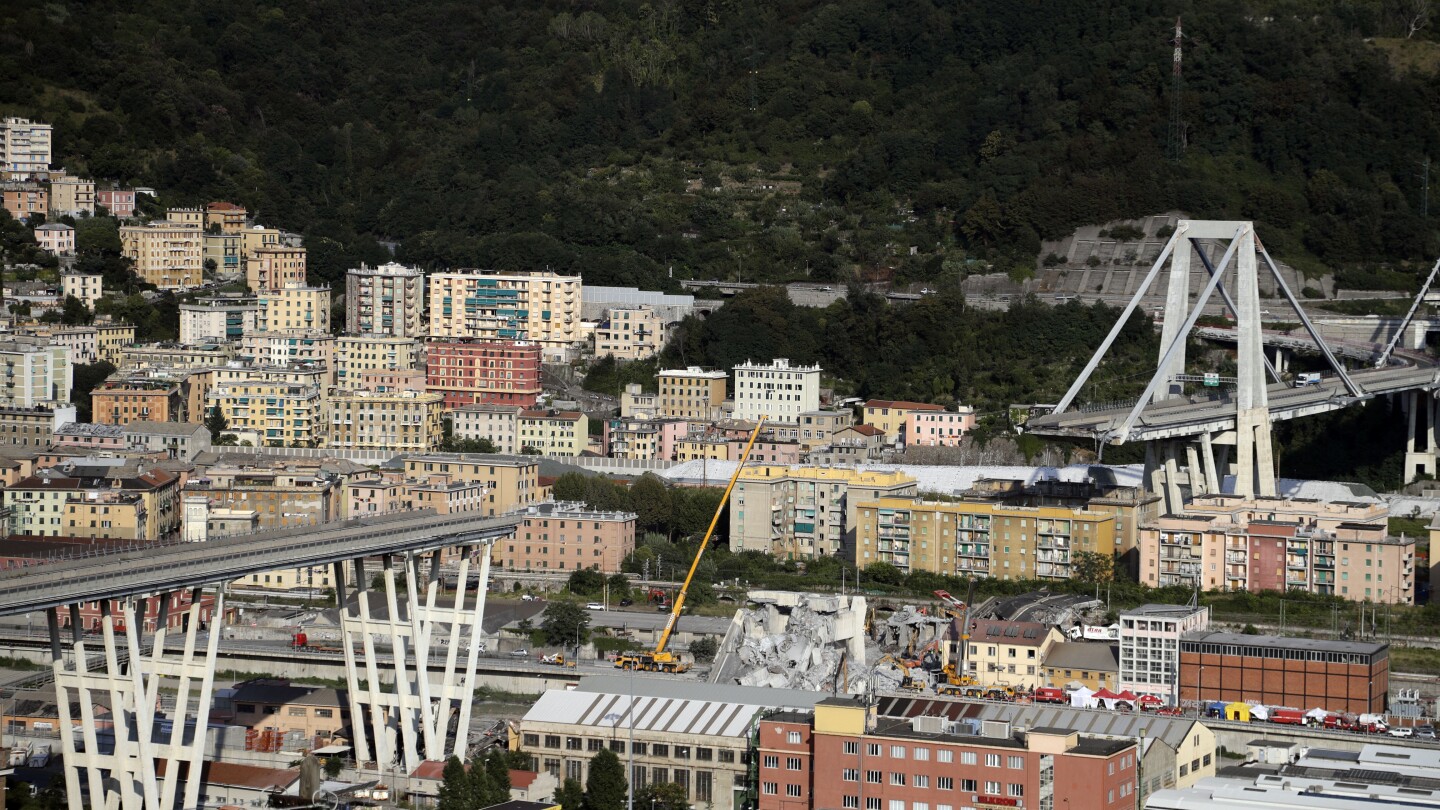ROME (AP) —
Italy marked the fifth anniversary Monday of the collapse of Genoa’s Morandi Bridge with a minute of silence and demands for justice for the 43 people who died in what authorities say was an example of greed-fueled negligence.
Infrastructure Minister Matteo Salvini told relatives of victims, local residents and authorities at the Genoa commemoration that the people who plunged to their deaths weren’t victims of a flood or natural disaster. Rather, he said, they were “victims of greed, of people who didn’t do their jobs.”
A huge section of the Morandi bridge broke off during a rainstorm on Aug. 14, 2018, when highways were packed on the eve of Italy’s biggest summer holiday, sending cars plunging into the dry riverbed below.
Fifty-eight people went on trial last year, accused of manslaughter and other charges. They include former executives and technical experts of the company that managed many of Italy’s bridges and highways, as well as former officials of Salvini’s ministry.
Prosecutors allege the defendants knew the bridge, which was built in the 1960s, was at risk of collapsing and that corners were cut on maintenance to save money. The bridge’s designer had recommended regular upkeep on the cement span to remove rust, especially due to the corrosive effect of moist salty air from the nearby Ligurian Sea.
Salvini told the crowd, gathered under the new span that was inaugurated in 2020 to replace the Morandi, that he had read some of the documentation from the trial. While he said he didn’t want to prejudge the outcome, he argued the evidence of greed and carelessness was clear.
“There were billions of euros in profits, some of which were supposed to have been reinvested in maintenance, that obviously, based on what transpired, were not invested in maintenance,” he said.
He added that by next year’s commemorations he hoped that Parliament would approve a law, proposed in the aftermath of the collapse, that considers victims of such negligence in public works equivalent to victims of terrorism or organized crime, in terms of their eligibility to recover financial compensation.
After he spoke, and as church bells tolled and sirens roared across Genoa, the crowd observed a minute of silence at 11:36, the moment of the collapse.
Egle Possetti, a prominent member of the committee of relatives of Morandi victims, told the crowd that the Morandi families trusted in the justice system, but that developments in the trial to date had been disheartening.
She cited testimony of executives and technical experts denying any responsibility, claiming not to know or remember details, and evidence of a transport ministry that blindly, “nearly kneeling,” accepted the word of a maintenance company that it was meant to regulate.
“There has also been testimony from many people who knew this bridge’s problems and didn’t speak up. They pretended not to hear,” she said, her voice breaking. “They toyed with the lives of millions of people, without the minimal civic sense to speak up.”
While the Morandi was the deadliest collapse in recent years, Italy has seen other bridge and highway collapses that have underscored the crumbling state of the country’s aging transportation infrastructure. Salvini told the crowd his ministry, which is responsible for 21,000 bridges and viaducts nationwide, was working to catch up on “decades of inattention” to upkeep.

